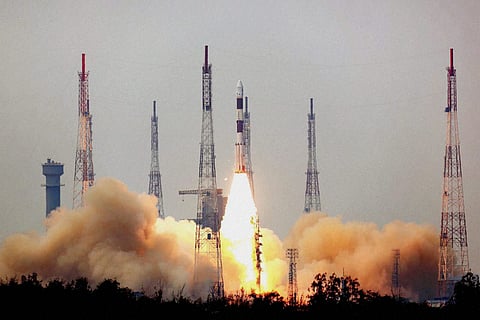

Prime Minister Narendra Modi, during the SAARC summit at Nepal in November 2014, had announced the launch of a satellite for SAARC nations. It's called South Asia Satellite (SAS) and will be launched on May 5 in Sriharikota on the coast of the Bay of Bengal.
Here's all you need to know about the satellite:
The nearly 50-m-tall rocket weighs about 2230 kg.
It is dubbed as the 'South Asia Satellite' or what the ISRO still prefers to call GSAT-9.
The satellite was built in three years.
The purely communications satellite is built at a cost of Rs 235 crore.
The uniqueness of this satellite is that it will have a footprint that extends all over South Asia.
The South Asia Satellite has 12 Ku band transponders which India's neighbours can utilise to increase communications. Each country will get access to at least one transponder through which they could beam their own programming and there could be common 'south Asian programing' as well.
Each country has to develop its own ground infrastructure though India is willing to extend assistance and know-how.
The satellite will "enable a full range of applications and services to our neighbours in the areas of telecommunication and broadcasting applications viz. television, direct-to-home (DTH), very small aperture terminals (VSATs), tele-education, telemedicine and disaster management support".
The satellite also has the capability to provide secure hot lines among the participating nations in addition since the region is highly prone to earthquakes, cyclones, floods, tsunamis, it may help in providing critical communication links in times of disasters.
Nepal, Bhutan, Maldives, Bangladesh and Sri Lanka have agreed to be onboard. Afghanistan will soon sign the deal. All SAARC nations, except for Pakistan - which opted out - will benefit from the SAS satellite